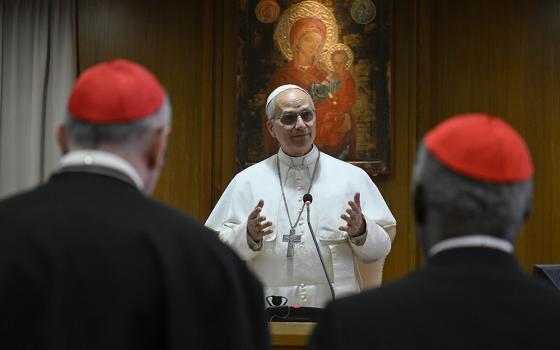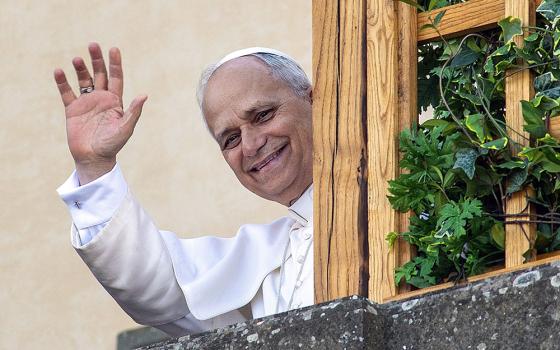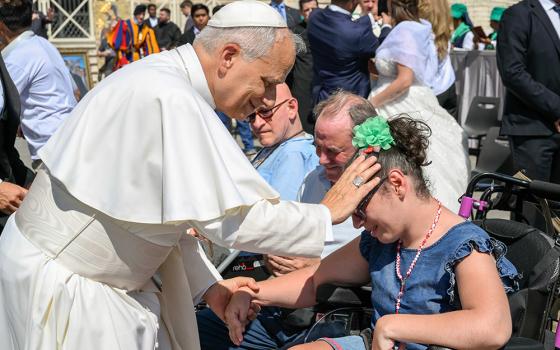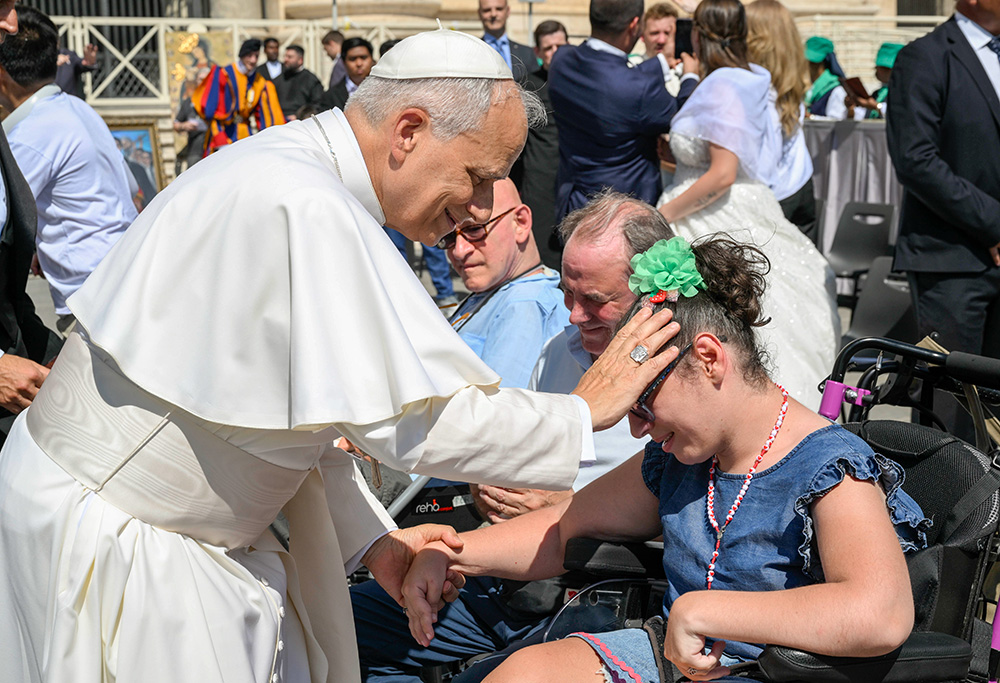
Pope Leo XIV blesses a young woman in St. Peter's Square at the Vatican before his weekly general audience June 25, 2025. (CNS/Vatican Media)
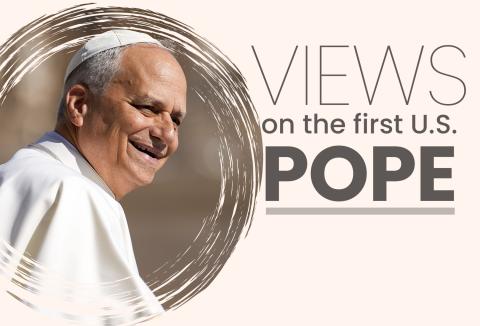
The news that Cardinal Robert Prevost had been elected pope and chosen the name Leo was a powerful and emotional surprise. I had grown used to the idea that the Roman Catholic Church would never see someone from the United States at the helm. What does his selection mean U.S. Catholics, the global church and beyond?
The pope's chosen name is significant. The legacy of Pope Leo XIII — a champion for the rights of working people during the late 19th century — has been widely discussed. Just as Leo XIII worried that the dignity of individuals was threatened by the physical and economic machinery of his day, our new Leo has expressed concern about the dehumanizing effects that can accompany advances such as artificial intelligence. Can we manage emerging technologies so as to keep the precious individual at the heart of society rather than consigned to the margins as a mere cog or consumer?
But the name Leo has an important second resonance for me. American ethicist Robert Greenleaf coined his influential theory of servant leadership decades ago following an epiphany generated by reading Nobel laureate Herman Hesse's novella The Journey to the East. The story concerns a journey undertaken by a league of extraordinary people that falls apart when the least among them, the servant Leo, departs from the group.
Greenleaf used the story to create a widely known paradigm to challenge standard top-down theories of who leaders should be. In his model, the leader is first and foremost a servant, and the success of any leader is to be measured by how colleagues grow under his or her care. The theory of servant leadership is widely known in business, academic and religious circles — I first encountered it while working with Jesuit missionaries in Honduras in 1980-81.
Advertisement
The world and its institutions, including churches, are rife with authoritarians. The exclusion of women from full leadership within the church, based upon archaic notions about human sexuality, has been at the root of so many of our tragic mistakes as Catholics.
Pope Francis initiated long-overdue change to begin welcoming women to more complete participation, and then-Cardinal Prevost supported and participated in his efforts. What a joyous day it will be when women, who have demonstrated servant leadership throughout human history, can fully exercise that gift within the church and around the world.
And then there is this pope's unique personal journey: born in Chicago to a family with European and Caribbean roots; deeply connected to America's racial history through his maternal family's Louisiana Creole culture; a member of the Catholic order dedicated to following the path of Augustine of Hippo, an African intellectual father of the early church; the parish priest who rose to theology instructor and bishop in his adopted home, Peru.
So many can see themselves in Leo XIV. In particular, U.S. Americans can better understand through him our connections throughout the Americas, connections that transcend race or national boundaries. This understanding can help elevate the long-suppressed stories of Black Catholics in America and soften hostility to immigrants from our hemisphere and beyond.
The election of this very catholic man calls to mind Galatians 3:28: "In Christ there is neither Jew nor Greek, neither slave nor free, nor is there male and female, for you are all one in Jesus Christ." Our nation, our world and our church yearn for such unity, where our very real differences are nevertheless joined in commitment to a higher love. Our pope can help us all orient toward this vision.
True servant leadership is rare and refreshing. Francis pursued this path and it seems Leo XIV will do the same. In modeling this behavior, he can affect the world far beyond the confines of the Catholic faith. As I contemplate Leo XIV's possible priorities, I pray in particular for a church truly living as an institution in which all are one.





